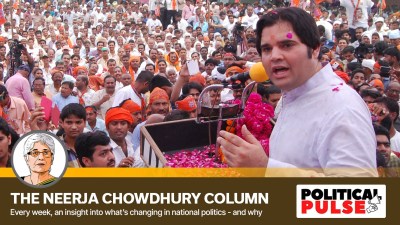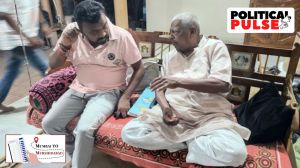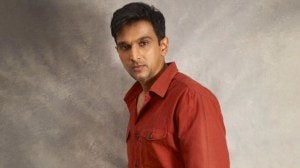- India
- International
Raj of the Royals (Part I): In Chhattisgarh power still resides in the palaces
As Rajasthan, Madhya Pradesh and Chhattisgarh go to polls in the coming days, here is a look at how the erstwhile royalties of these states have continued to rule through modern political mechanisms.
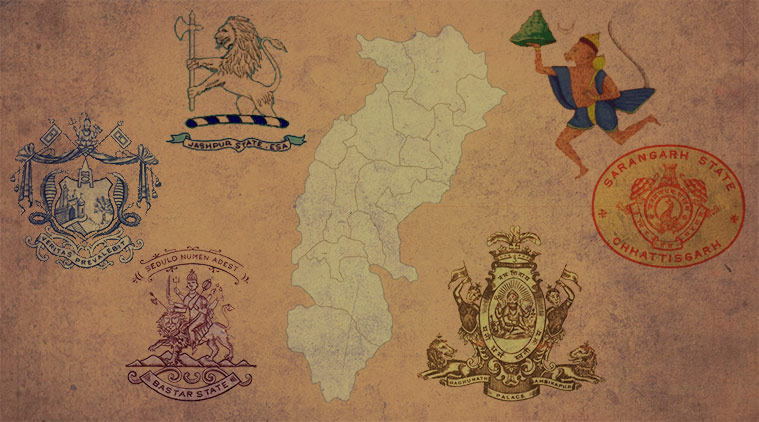 At present, there are approximately 13 royal families in Chhattisgarh, out of which nine have been or are still actively involved in politics.
At present, there are approximately 13 royal families in Chhattisgarh, out of which nine have been or are still actively involved in politics.
In the late 1930s, when architects of the nationalist struggle were along with the British busy drawing the contours of what would soon be an Independent India, the soon-to-be-prime minister Jawaharlal Nehru wrote rather derogatively about the princely states that dotted across the peripheries of British ruled India, in a work titled, “What are the Indian states?”. In Nehru’s opinion, the states were ‘backward’, many among them being stuck in the “feudal age”. Yet, less than a decade later, when these states had been integrated into a free nation, the government-owned overseas airlines company, Air India, chose the turbaned Maharaja or prince in all its royalty as their official mascot. Soon the princes would make their presence felt in the administration of the country. “In independent India and Pakistan, governments have appointed them to positions ranging from state governors or ambassadors; political parties have co-opted erstwhile princes as candidates for the central and state legislatures and appointed them as ministers,” writes historian Barbara N. Ramusack in her book ‘The Indian princes and their states.’
In his work titled ‘Princes in Indian politics’, political scientist William L. Richter notes that princes and members of princely families have competed for parliamentary and assembly seats since the first general elections in 1951-52. As per his research, the regions with the highest princely candidacy are Orissa and the Chhattisgarhi region of Madhya Pradesh, followed closely by Rajasthan and Gujarat. Richter writes that the reasons for the continued prominence of the princes in politics are diverse. In most cases, traditional support had not been eroded. In some others, the disappointment caused by the rule of the Indian government generated nostalgia for the ‘good old days’ of the princely states. In several cases, local or national political parties have absorbed princely members to broaden the popular appeal and some others, the princes have themselves adopted modern campaign techniques by forming independent political parties.
As Rajasthan, Madhya Pradesh and Chhattisgarh go to polls in the coming days, here is a look at how the erstwhile royalties of these states have continued to rule through modern political mechanisms.
Click here to experience this story in infographics
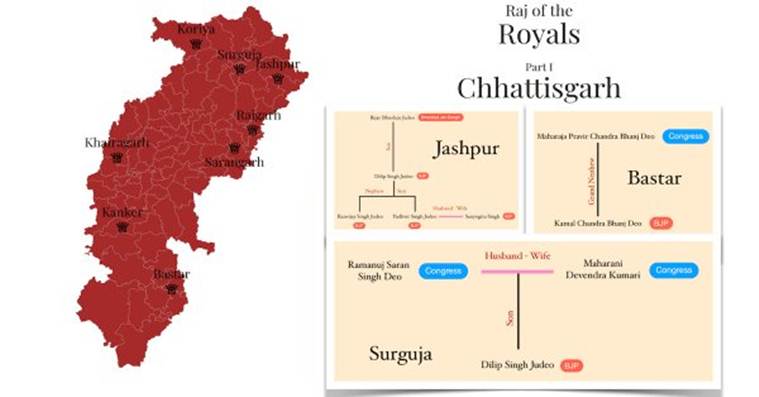
Chhattisgarh
The royal families of Chhattisgarh have influenced voting in the region since the time it was part of Madhya Pradesh. Interestingly, the entry into politics of several former princes occurred while taking up the cause of the tribal communities soon after independence. At present, there are approximately 13 royal families in Chhattisgarh, out of which nine have been or are still actively involved in politics. While the royal families of Jashpur and Surguja have through the years, continued to make their active presence felt in politics, others like Kanker and Sarangarh that had once produced several leaders, have now distanced themselves from politics.
Bastar
In what was previously the largest princely state in the region, the involvement of the princes in politics goes back to the time when Maharaja Pravir Chandra Bhanj Deo fought for the rights of the tribal people. He provided political leadership for Adivasis in their protests against government exploitation of forests and mineral resources. Immensely popular among his people, he won the 1957 general election on a Congress ticket and represented Jagdalpur in the Legislative Assembly. He was killed in a police firing on the steps of his own palace along with several others from the royal court.

More than 50 years later, Pravir Chandra’s grand nephew Kamal Chandra Bhanj Deo who is the current Raja of Bastar decided to join politics in 2013. He is currently part of the BJP and was one of the contenders from Jagdalpur, but has not been given a ticket for the upcoming elections.
Jashpur
Bijay Bhushan Judeo who was the king of Jashpur during Independence led the Hindu reactionary forces against Christian missionary groups who were extremely active in the region. He was part of active politics since the early Jan Sangh days and was elected part of the Legislative Assembly representing Jashpur in 1952. He also became part of the Lok Sabha in 1962 representing Raigarh and of the Rajya Sabha in 1970.
Bijay Bhushan’s son Dilip Singh Judeo was renowned for the ‘gharwapasi’ campaign through which he re-converted to Hinduism thousands of tribals who had taken up Christianity. A member of the RSS since his youth, Judeo was the first part of the Jan Sangh and then of the BJP. He was elected to the Rajya Sabha first in 1992 and then again in 1998. In 2003 he led the BJP to victory in the state elections but refrained from taking up the chief ministerial post despite popular support. In 2004 he served as the Minister of State for Environment and Forests in the Atal Bihari Vajpayee led government at the centre. In November 2003, Judeo was accused of accepting a bribe for mining rights in Chhattisgarh. He passed away in August 2013.
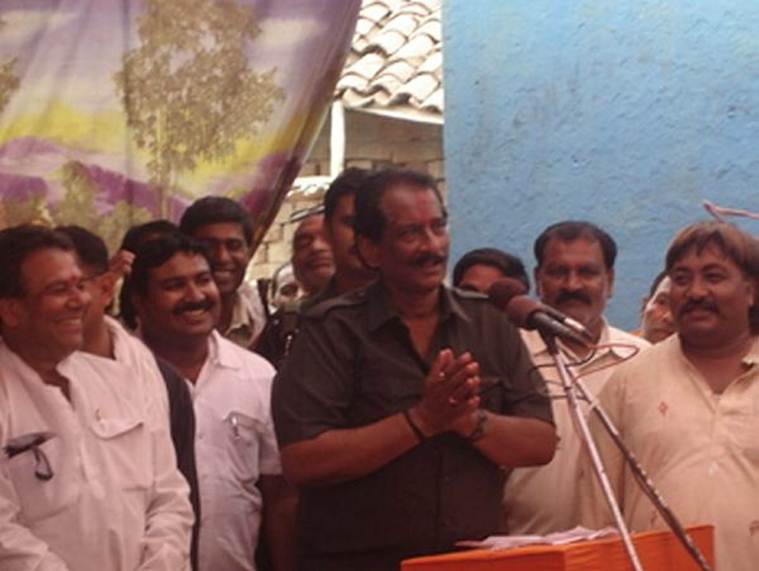 Bijay Bhushan’s son Dilip Singh Judeo was renowned for the ‘gharwapasi’ campaign through which he re-converted to Hinduism thousands of tribals who had taken up Christianity. (Express archive photo)
Bijay Bhushan’s son Dilip Singh Judeo was renowned for the ‘gharwapasi’ campaign through which he re-converted to Hinduism thousands of tribals who had taken up Christianity. (Express archive photo)
Dilip Singh’s nephew Ranvijay Singh Judeo is a member of the Rajya Sabha now. Yudhvir Singh Judeo, who is son of Dilip Singh, has been part of the Legislative Assembly for two terms from the Chandrapur seat on a BJP ticket. However, for the 2018 elections party has denied him a ticket and has nominated his wife Sanyogita Singh to contest from the same seat.
Surguja
Maharaja of Surguja Ramanuj Saran Singh Deo was elected as the first MLA of the region in 1951. His grandson, Madaneshwar Singh Deo was the ex-chief secretary of the of the government of Madhya Pradesh. He married Maharani Devendra Kumari who also became a legislator and minister on a Congress ticket. In 1957, when the Lok Sabha constituency and most Assembly seats in Surguja were reserved for Scheduled Castes, the family kept away from politics.
In 2008, the Assembly seat of Ambikapur was unreserved and that is when the Congress party fielded the current Raja, and son of Madaneshwar Singh Deo, T S Singh Deo, as its contestant. He won the seat with a margin of 980 votes. In 2013 he won again, this time with a large margin, and was made the leader of opposition in the Legislative Assembly.
Khairagarh
The fourth Raja of Khairagarh, Bahadur Birendra Bahadur Singh, became a legislator in the constituency in the first Assembly elections held in 1951. His daughter-in-law Rashmi Devi Singh won the Khairagarh seat four times. Her son Devwrat Singh who is the current Raja of Khairagarh is a politician from the Indian National Congress. He first became an MLA in the Madhya Pradesh Legislative Assembly in 1995 and in 1998 a part of the Legislative Assembly in Chhattisgarh. In the 2004 general elections, Singh won a seat in the Lok Sabha representing Rajnandgaon constituency of Chhattisgarh. Singh left the Congress in December 2017 and soon after joined Ajit Jogi’s Janata Congress Chhattisgarh (JCC).
Raigarh
Lalitkumar Singh, the last official ruler of Raigarh, got elected to the Legislative Assembly from Gharghonda in 1952 on a Congress ticket. He was once again elected to the Assembly in 1957 from Chargoda. In 1980 he tried his luck in the elections again but was defeated.
Singh’s younger brother Surendra Kumar Singh was also a Congress politician. He first got elected to the Legislative Assembly of Madhya Pradesh in 1962 from Leluga which is now part of Chhattisgarh. He won the seat again in 1972. Later he was a member of Committee of Defence, Committee on Petroleum and Natural Gas and Consultative Committee for the Ministry of Planning and Programme Implementation, Science and Technology. He died in June 2015.
Sarangarh
Raja Nareshchandra Singh, the ruler of Sarangarh when India attained independence, became an MLA from the constituency in the first Legislative Assembly elections in 1951. He was re-elected to the seat thrice after that. In 1969 he also became Chief Minister of Madhya Pradesh, but resigned after 13 days and quit from politics. After he resigned, his wife Rani Lalita Devi was elected unopposed from Pussour Assembly constituency in his place.
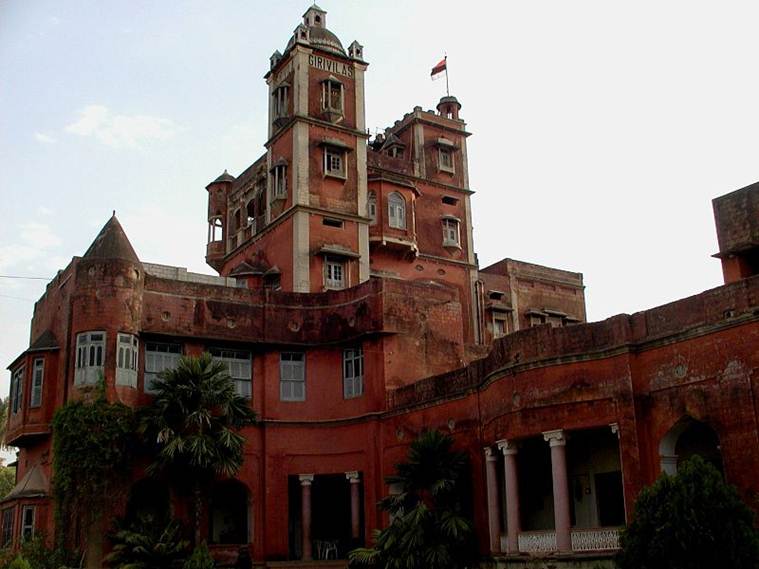 Palace of Nareshchandra Singh in Sarangarh. (Wikimedia Commons)
Palace of Nareshchandra Singh in Sarangarh. (Wikimedia Commons)
Singh’s three daughters, Kamla Devi, Rajnigandha and Pushpadevi Singh were all in active politics. Rajnigandha Devi went on to serve in the Lok Sabha in 1967 from Raigarh constituency on a Congress ticket. Kamla Devi was five times MLA between 1972 and 1990 from Sariya seat of Raigarh. She was also a Cabinet minister during Congress government in undivided MP.
Koriya
Ramchandra Singh Deo, who was member of the Koriya royal family, contested the Assembly elections of 1967 and won. Later he won six elections and held some very important ministerial posts. He was the first finance minister of Chhattisgarh as well. He passed away in July this year, after which his niece Ambika Singh Dev is now contesting the elections from Baikunthpur constituency on a Congress ticket.
Kanker
Bhanu Pratap Dev who was the Maharaja of Kanker when the country attained independence made his way into the democratic system right from first elections. He was elected to the Legislative Assembly of Madhya Pradesh for two terms, first on a Congress ticket in 1952 and then as an independent candidate in 1962. After the death of Dev in 1969, however, the royal family distanced itself from politics.
Apr 25: Latest News
- 01
- 02
- 03
- 04
- 05











